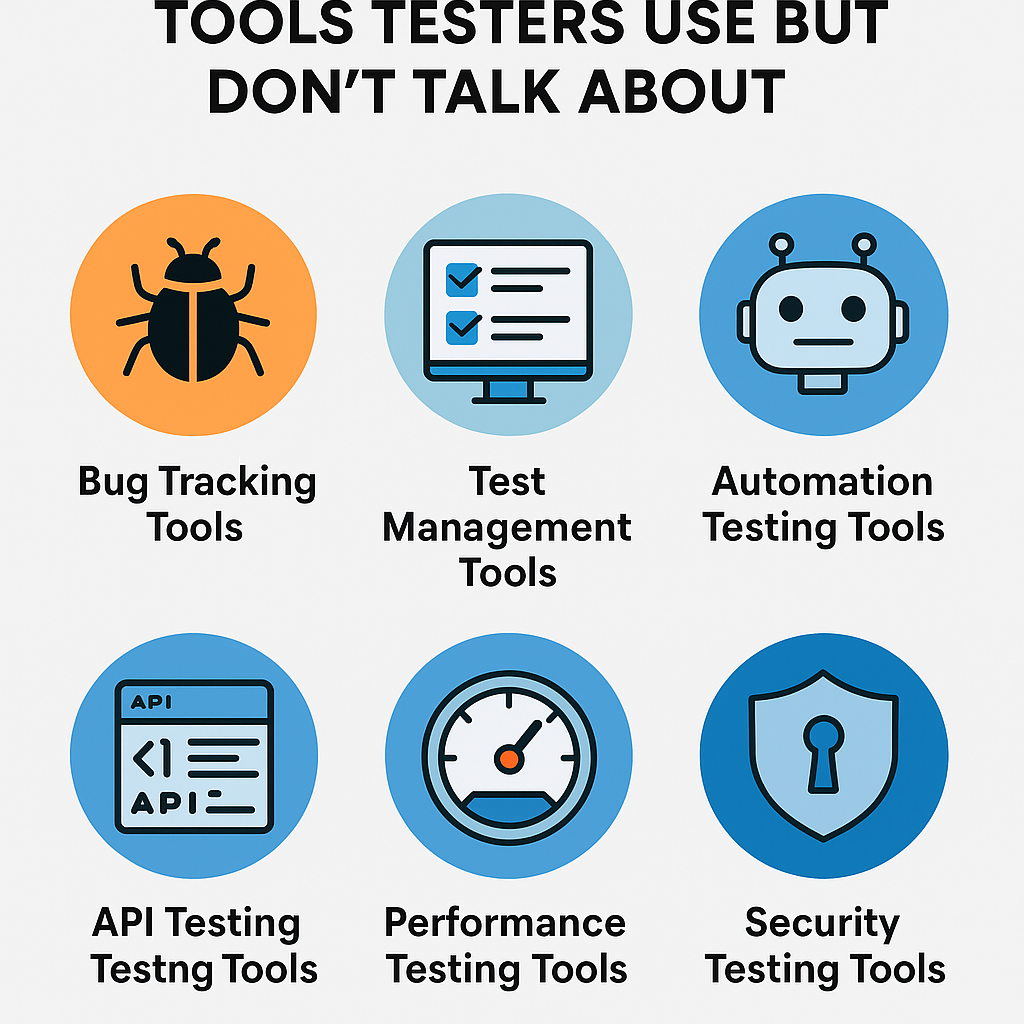Introduction: Why QA Testing Skills Matter More Than Ever in 2025?
Software can be found in our smartphones, automobiles, and even within our homes. Technology is changing quickly, so companies need good software that works perfectly every time. This is where quality assurance testers come into play.
A quality assurance tester is in charge of finding bugs, making sure that software works well, and making sure that software meets user expectations. In 2025, testing will no longer be limited to clicking buttons. It will include automation, problem-solving, and the use of modern tools such as Selenium, Git, Jenkins, and Postman.
If you want to change jobs or get better at what you do, learning these important skills can help you become a highly sought-after tester in today’s job market.
1. Attention to Detail—Spotting the Smallest Errors (Soft Skill Focus)
QA testers must possess the capability to detect even the smallest errors that may be overlooked by others.
Example:
Imagine editing a book before it’s published. A simple typo can have a profound impact on the meaning of an entire sentence. Likewise, a small bug in software can lead to security issues or customer dissatisfaction.
How to Develop This Skill:
- Practice reviewing test cases step-by-step.
- Focus on edge cases where things might fail unexpectedly.
2. Analytical Thinking—Solving Complex Problems (Problem-Solving Skills)
Testers often face tricky problems with software that behaves differently than expected. Thinking critically helps to understand the problem and find its root cause.
Example:
Imagine an e-commerce application that crashes solely when customers add items to their cart. Examining logs, evaluating APIs, and examining code might reveal that a missing database entry is triggering the issue.
How to Develop This Skill:
- Work with tools like Postman to test APIs.
- Practice debugging issues using logs and error reports.
3. Communication Skills—Conveying Issues Clearly (Soft Skill Focus)
Finding a glitch isn’t enough—you need to communicate the issue to techies in a way they can address it.
Example:
Imagine trying to show someone how to cook something to someone who’s never cooked before. You need clear instructions with easy-to-follow steps. The same thing happens to QA testers when creating bug reports.
How to Develop This Skill:
- Write detailed bug reports with screenshots.
- Practice explaining issues during team meetings.
4. Test Automation—Mastering Tools and Scripts (Technical Skill Focus)
In the year 2025, the majority of companies anticipate that testers will possess proficiency in automation tools such as Selenium and frameworks such as TestNG.
Example:
Instead of manually testing the login functionality 100 times, write a Selenium script that tests the login functionality automatically. It saves time and minimizes errors.
How to Develop This Skill:
- Learn programming languages like Java or Python.
- Use tools like Selenium WebDriver to create automated test scripts.
5. API Testing—Ensuring Smooth Communication Between Systems (Technical Focus)
Modern applications rely on APIs to transfer data between systems, rendering API testing a crucial skill to possess.
Example:
APIs are like waiters in a restaurant, delivering your order to the kitchen and bringing your food back. If something goes wrong, the information might not get to the kitchen server.
How to Develop This Skill:
- Use tools like Postman to test API requests and responses.
- Automate API tests and integrate them into CI/CD pipelines.
6. CI/CD Pipelines—Working with Modern DevOps Tools (DevOps Integration)
CI/CD pipelines help automate testing and deployment, allowing faster releases. They help automate testing and deployment. Quality assurance testers need to know tools like Git and Jenkins in order to fit into DevOps workflows.
Example:
A CI/CD pipeline is similar to a car factory assembly line, with each part happening automatically, ensuring consistency and speed.
How to Develop This Skill:
- Learn Git commands for version control.
- Set up Jenkins jobs to run test scripts after every code update.
7. Performance Testing—Making Apps Faster and Reliable (Specialized Testing Focus)
Performance testing makes sure that applications work well even when there is a lot of traffic or a lot of stress.
Example:
Imagine an e-commerce website experiencing a crash during a Black Friday sale. JMeter lets you test the site with thousands of people to see if it’s up to the task.
How to Develop This Skill:
- Use JMeter to create performance tests.
- Analyze logs to find bottlenecks in the application.
8. Security Testing—Protecting Sensitive Data (Advanced Skill Focus)
Since there are more cyberattacks, QA testers need to check for weaknesses to keep data safe.
Example:
Consider testing to be similar to locking doors and installing cameras in a house before moving in. Testers make sure that passwords are safe and that sensitive data is safe.
How to Develop This Skill:
- Use tools like OWASP ZAP to test security.
- Learn to identify vulnerabilities in login forms and data storage.
Why Structured Training Matters for QA Testers?
Key Benefits of Training Programs:
- Hands-On Projects: Practice real-world scenarios to build confidence.
- Certifications: Boost your credibility with certifications like ISTQB and Certified Selenium Tester.
- Expert Support: Learn step-by-step from industry professionals.
Example:
Training is like learning to drive with an instructor—you’re prepared for real-world challenges, not just theory.
Final Thoughts—Are You Ready to Become a QA Tester in 2025?
The demand for skilled QA testers is growing in 2025. The right mix of soft skills, technical expertise and DevOps knowledge will allow you to step confidently into this exciting career.
Call-to-Action:
Ready to build the skills you need to succeed? 🚀 Explore our Manual and Automation Testing Training Program today and start your journey toward becoming a QA expert!
API Testing Training with Postman
Selenium Certification Training with DevOps approach
Explore our other learning options through our self-driven courses:









